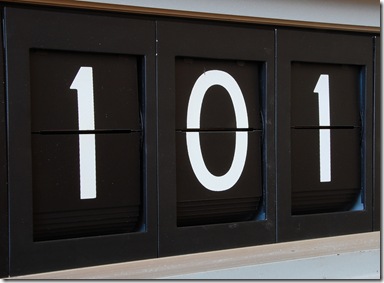New Poll Shows Over 50% Unemployed For Over A Year
I recently conducted a non-scientific poll using LinkedIn. 912 people responded to the poll and the results follow with some commentary on the results.
The only question asked was, “How long have you been unemployed and looking for a job?” Since most of the people on LinkedIn tend to be professionals, one can draw the conclusion that the majority of the people responding have a college degree, include all functional departments within a company, and that the respondents range from entry level professionals to the CEO suite.
Overall results are:
9% under 60 days
18% 3-6 months
12% 7-9 months
9% 9-12 months
51% over one year
Many of the comments from the respondents would indicate that some have been unemployed for more than 2 years.
Breaking these numbers down further, 39% of the respondents were female and 61% were male according to LinkedIn. There was almost no difference between females and males out of work for more than a year with 52% for females and 51% for males. The other lengths of time were also very similar between females and males.
The most controversial part of the poll was how LinkedIn broke the number down by age. Of all of the comments received, this was the topic that received the most discussion. For the most part, people commenting clearly thought age discrimination was alive and well. As a recruiter for the last 30 years I’m not sure this is accurate.
Of those 18-24 years old, 50% have been unemployed for more than a year, 22% for 3-6 months, 17% for less than 60 days and the balance of 11% between 7-12 months.
Of those 25-34 years old, 41% were more than one year, 19% for 3 -6 months, 18% for less than 60 days, and the remainder of 22% between 7 – 12 months.
Of those 35-54 years old, 49% were more than one year, 19% for 3-6 months, 11% for less than 60 days and 21% between 7 -12 months.
Of those 55 and older, 55% were more than one year, 16% 3 -6 months, 6% less than 60 days and 23% between 7-12 months.
It doesn’t surprise me that the largest number of people unemployed for more than a year are in the over 55 age group. I would expect this to be the case. Granted, there may be some age discrimination going on, but for the most part this age group is the highest paid group and the most senior on the corporate ladder. It is for these reasons I believe this is the largest group. Our recruiting business is primarily mid-sized company executives. Generally these executives take the longest amount of time to come back from a recession. I started recruiting in 1980, so this is my 4th or 5th recession as a recruiter, and in all previous recessions this is the last group companies hire. Not the oldest, but the most experienced and most highly compensated. In today’s world, a new phenomenon is taking over with companies bringing on interim or temporary executives instead of out right hiring them.
I don’t see age discrimination when the age group of 18-24 has only 5% less looking for more than one year than the 55+ group and a 1% difference for 34-54 group. In most cases this would be within the margin of error. I think it has more to do with experience. The 18-24 age group typically has the least amount of experience and those 55+ typically have the most. Companies tend first to hire in the middle of the bell curve before moving to the outer extremes.
Regardless of how one wants to view the results, the fact is that the largest group in every age group is more than one year. To me this is the most important information coming from this poll. I wonder how much longer than a year have possibly many been looking and how many have just given up?
Unemployment is alive and thriving at all age levels. Unemployment doesn’t appear to care about your age all that much.
If you would like to see the results of this poll for yourself CLICK HERE.
If you would like some free tools to help you get out of your job search regardless of how long you have been looking CLICK HERE to download our LinkedIn Profile Assessment and CLICK HERE to download our Job Search Self- Assessment Scorecard. Both of these tools will help you to identify key areas to improve your job search.
I welcome your comments and thoughts.
Brad Remillard









